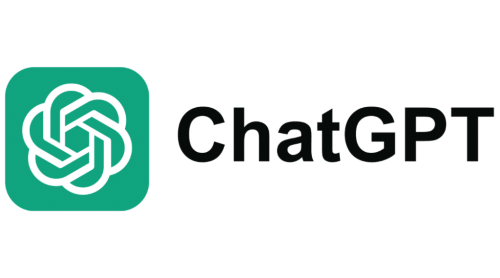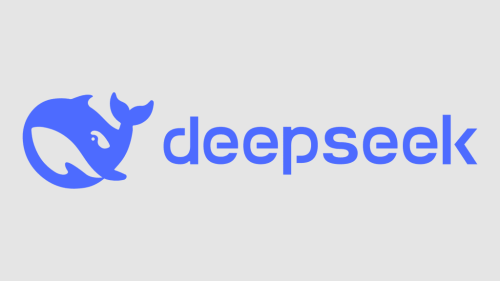ChatGPT vs Deepseek (chatbots) – In the realm of digital marketing, the utilization of artificial intelligence has become increasingly pivotal in enhancing content creation and data analysis. Two noteworthy tools that have emerged in this landscape are ChatGPT and DeepSeek. Each of these platforms offers unique functionalities catering to different aspects of digital marketing strategies.

ChatGPT, developed by OpenAI, is a sophisticated language model that excels in generating human-like text responses. This model operates based on a vast dataset, enabling it to understand and produce text that aligns closely with human conversation patterns. Its primary purpose is to assist writers, marketers, and businesses in creating engaging content, crafting personalized communication, and automating customer interactions. With its ability to generate coherent and contextually relevant text, ChatGPT has become a valuable asset for digital marketers seeking to enhance their outreach efforts and improve user engagement.

On the other hand, DeepSeek operates in a different domain within the digital marketing ecosystem. This AI-driven tool is designed specifically for advanced data analytics and insights. It empowers marketers by providing in-depth analyses of market trends, consumer behavior, and competitive landscapes. By leveraging big data, DeepSeek allows organizations to make informed decisions, optimize marketing strategies, and ultimately enhance their return on investment (ROI). Its advanced data processing capabilities play a crucial role in identifying key performance indicators and trends that are essential for successful digital marketing campaigns.
Both ChatGPT and DeepSeek represent significant advances in the use of artificial intelligence in marketing. While they serve different primary purposes—content generation and data analytics—they complement each other within a comprehensive digital marketing strategy. Understanding the functionalities and applications of these tools can greatly assist marketers in navigating the increasingly complex landscape of digital engagement.
Overview of Features: ChatGPT
ChatGPT, developed by OpenAI, is an advanced language model that provides a range of features highly beneficial in the digital marketing landscape. One of its primary capabilities is content generation, allowing marketers to create high-quality articles, blog posts, social media updates, and marketing copy quickly and efficiently. This feature not only saves time but also enables the production of fresh and engaging content that can captivate audiences, thereby enhancing brand visibility.
In addition to content creation, ChatGPT excels in customer support through its chatbot functionalities. This application allows businesses to implement AI-driven chat solutions that can engage with customers in real time. Leveraging this feature in digital marketing campaigns can help manage inquiries, facilitate transactions, and provide support outside of regular business hours. For instance, retailers can configure ChatGPT to address common customer queries, enabling a more streamlined experience that can lead to increased customer satisfaction and loyalty.
Another notable feature of ChatGPT is its language translation capabilities. Businesses targeting diverse markets can benefit significantly from this functionality, as it enables them to communicate effectively with audiences in various languages. By using ChatGPT for translations, marketers can ensure their messages resonate with distinct cultural contexts while maintaining the nuances of the original content. Implementing language translation in campaign strategies can facilitate better engagement with international customers, enhance accessibility, and ultimately expand market reach.
Through its robust features, ChatGPT proves to be a versatile tool that can significantly enhance the efficiency of digital marketing efforts. Its applications in content generation, customer support, and multilingual communication represent a paradigm shift in how businesses can interact with their audiences and promote their services online.
Overview of Features: DeepSeek
DeepSeek is an innovative tool designed for digital marketers, offering a comprehensive suite of features aimed at enhancing marketing strategies through advanced data analytics. At the core of DeepSeek’s capabilities is its robust data analytics system, which empowers users to extract insightful data from various sources. This enables marketers to better understand trends, customer behavior, and market dynamics, allowing for informed decision-making.
One of the standout features of DeepSeek is its sentiment analysis. This functionality enables marketers to gauge public sentiment regarding their brand or products by analyzing social media conversations, customer reviews, and online discussions. By understanding the general sentiment, marketers can tailor their strategies to align with consumer perspectives. This proactive approach not only enhances engagement but also fosters brand loyalty as companies respond to the needs and sentiments of their audience.
Moreover, DeepSeek excels in market research capabilities, enabling users to identify emerging market trends and shifts in consumer preferences. This feature allows digital marketers to stay ahead of competitors by leveraging real-time data insights. Understanding what competitors are doing and how consumers are reacting to their campaigns can provide a significant edge in developing marketing strategies that resonate with the target audience.
Keyword tracking is another essential feature that DeepSeek offers, providing marketers the ability to monitor specific keywords over time. This function is crucial for search engine optimization (SEO) and content marketing efforts, as it allows users to assess which keywords are driving traffic and engagement. By leveraging this data, marketers can optimize their content and campaigns, ensuring that they remain relevant and effective in a constantly evolving digital landscape.
Collectively, these features of DeepSeek equip digital marketers with the necessary tools to make data-driven decisions, ultimately enhancing their effectiveness in navigating the competitive landscape of digital marketing.
Pros and Cons of ChatGPT
ChatGPT has emerged as a popular artificial intelligence tool in the realm of digital marketing, offering various advantages that appeal to marketers and businesses alike. One of the most notable strengths of ChatGPT is its versatility. It can assist in a wide range of marketing activities, from generating engaging content to answering customer queries. Moreover, its ease of use allows users with minimal technical expertise to leverage the tool effectively, making it accessible to a broad audience. This user-friendliness contributes to significant time-saving capabilities; marketing teams can quickly generate drafts, brainstorm ideas, or create social media posts, thereby streamlining their workflows.
However, while the benefits of ChatGPT are evident, it is crucial to acknowledge its limitations. One significant concern is the potential for inaccuracies in the generated content. While ChatGPT can produce coherent and contextually relevant text, it may also create outputs that lack precision or correctness, leading to misinformation. For digital marketers, this poses a risk, as inaccurate content can damage credibility and trust with their audience. Additionally, the quality of the output often depends heavily on the prompts given. In cases where the instructions are vague or poorly constructed, the resulting text may not meet expectations, necessitating additional revisions that diminish the efficiency the tool aims to provide.
In light of these pros and cons, digital marketers must carefully consider how to integrate ChatGPT into their strategies. While it undoubtedly offers remarkable capabilities that can enhance productivity, awareness of its limitations is essential. A balanced approach, where ChatGPT is utilized alongside thorough human oversight, can optimize its effectiveness while mitigating challenges associated with its use.
Pros and Cons of DeepSeek
DeepSeek has emerged as a significant tool in the realm of digital marketing, offering a variety of features that cater to the needs of marketers. One of the primary strengths of DeepSeek lies in its robust analytics capabilities. Users can extract and analyze large amounts of data to understand consumer behavior, track engagement metrics, and assess campaign performance. This advanced data interpretation supports marketers in making informed decisions based on real-time insights, helping them to adapt strategies effectively.
Furthermore, DeepSeek excels in its detailed reporting capabilities. It provides comprehensive reports that not only present data but also contextualize performance metrics, allowing marketers to evaluate the success of their initiatives and identify areas for improvement. These features make it an appealing option for businesses aiming to optimize their digital marketing efforts through data-driven methodologies.
However, there are notable drawbacks to consider. One potential downside is the risk of over-reliance on data, which can overshadow the importance of creative and strategic thinking. Marketers may become too focused on performance metrics, detracting from the innovative aspects of campaign development that are essential for capturing audience attention in a competitive landscape.
Additionally, the complexity of using DeepSeek can pose challenges for beginners. The sophisticated nature of its tools may result in a steep learning curve for users unfamiliar with data analytics, potentially limiting accessibility for smaller businesses or less experienced marketing teams. Moreover, the associated costs of utilizing DeepSeek can also be a consideration, as budget constraints may prevent some companies from fully leveraging its features.
Ultimately, while DeepSeek offers valuable tools for data analysis and reporting, potential users must weigh these advantages against the challenges of complexity, reliance on data, and financial implications to determine its fit within their digital marketing strategy.
How ChatGPT and DeepSeek Aid Digital Marketing Strategies
In the evolving landscape of digital marketing, tools like ChatGPT and DeepSeek are becoming instrumental in shaping effective strategies. ChatGPT, a powerful language model developed by OpenAI, excels in content creation, enabling marketers to produce compelling and relevant written material. With its ability to understand and generate human-like text, ChatGPT can assist in drafting blog posts, social media content, product descriptions, and even customer support responses. This capability not only saves time but also allows marketers to engage more effectively with their audience by generating personalized responses and interactive dialogues, enhancing overall customer engagement.
On the other hand, DeepSeek provides a robust framework for data analysis, which is crucial for effective strategic planning in digital marketing. By harnessing the capabilities of deep learning and big data analytics, DeepSeek allows marketers to sift through vast amounts of data to uncover valuable insights. This includes analyzing customer behavior, market trends, and competitor strategies. The ability to gain deep insights into these areas empowers marketers to make informed decisions, optimizing their campaigns for better performance. Furthermore, DeepSeek’s capacity for predictive analytics means that marketers can anticipate future trends, tailor their content strategies accordingly, and allocate resources more effectively.
When integrated into a cohesive marketing strategy, ChatGPT and DeepSeek complement each other remarkably well. While ChatGPT focuses on enhancing customer interaction through meaningful content and engagement, DeepSeek ensures that these efforts are grounded in a strong strategic foundation built on data. Together, these tools can create a synergistic effect, allowing marketers to not only reach their audience more effectively but also to strategically position their offerings in a competitive marketplace. By leveraging both tools, digital marketing professionals are well-equipped to navigate the complexities of modern marketing with agility and precision.
Digital marketing agencies are increasingly leveraging advanced AI tools like ChatGPT and DeepSeek to enhance their services and optimize client campaigns. By utilizing ChatGPT, agencies can generate engaging content, craft personalized responses, and streamline communications, ensuring that their messaging resonates with target audiences. This AI-driven approach not only saves time but also fosters creativity, enabling marketers to experiment with various voice and tone strategies.
On the other hand, DeepSeek enhances data analysis capabilities, allowing agencies to mine insights from vast datasets, uncover trends, and predict consumer behavior with greater accuracy. This synergy between content creation and data analysis empowers agencies to deliver more targeted and effective marketing strategies, ultimately driving better results for their clients in an increasingly competitive digital landscape. By integrating these technologies, agencies can stay ahead of the curve and provide exceptional value in their marketing efforts.
Conclusion: Choosing the Right Tool for Your Marketing Needs
In today’s digital landscape, the importance of selecting the right marketing tools cannot be overstated. Both ChatGPT and DeepSeek present robust features designed to cater to various aspects of digital marketing, yet they serve distinct functions. When it comes to deciding which tool aligns best with your company’s requirements, several factors should be considered.
Firstly, evaluate your company size and structure. Larger organizations may find ChatGPT’s conversational capabilities beneficial for customer service and engagement. In contrast, smaller businesses may prefer DeepSeek’s search optimization features to enhance their online visibility and drive traffic. Understanding your team’s capabilities will also help in determining which tool offers a better fit for ease of integration and user experience.
Another crucial aspect is budget; both tools come with different pricing models. ChatGPT may require a subscription that scales with usage, making it essential to analyze potential return on investment. On the other hand, DeepSeek may offer more budget-friendly options that can still deliver substantial results in search engine optimization. Identifying which tool provides long-term value is critical for sustainable growth.
Lastly, align your choice with your marketing goals. If your focus is on generating high-quality content quickly, ChatGPT could be the ideal option. Conversely, if your aim is to enhance organic reach through better keyword targeting, opting for DeepSeek might yield better results. Ultimately, considering the unique advantages of each tool can help make an informed decision.
In conclusion, both ChatGPT and DeepSeek can significantly enhance digital marketing efforts when utilized appropriately. Organizations might even explore using both platforms in a complementary manner to achieve optimal marketing outcomes. Careful consideration of company size, budget, and specific marketing objectives can guide you toward selecting the most suitable tool for your unique needs.
